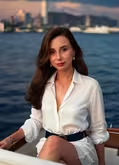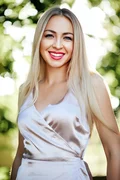We are currently undergoing maintainence, please come back soon. How should Donald Trump deal with Russian foreign policy questions Putin? The German Question, to put it simply, was whether or not a unification of German speakers under one rule would create a dangerously powerful state at the center of Europe.
The answer to that question was decided in the end, as Otto von Bismarck had foreseen, by blood and iron. Two vast, catastrophic wars brought violence and destruction to the whole of Europe and finally left Germany defeated and divided. The same cannot be said of Russia, which has become more aggressive even as its economic significance has diminished. The biggest and hardest question of 21st-century geopolitics may prove to be: What do we do about Moscow? Germany’s location was central in European terms.
At its height, the German Reich extended from Koblenz to Königsberg, from the banks of the Rhine to the beaches of the Baltic. Russia today is central in global terms. It was the only one of the great European empires that extended into Asia over land rather than sea. In the 19th century, the tension between Russia’s westward-looking metropolises and its vast Asian hinterland furnished novelists and playwrights with wonderfully rich material. Ivan Turgenev and Fyodor Dostoevsky could debate which direction Russia should take, but no one doubted the existence of the West-East dilemma. Nor was it a purely geographical phenomenon. But Russia’s West-East dilemma today is fast becoming the central problem of international politics, not literature.
On one side lies a China that long ago surpassed Russia in economic as well as demographic terms and increasingly aspires to military preeminence in Asia. On the other side of Russia lies a Europe that, for all its prosperity, has become politically introverted and excessively reliant on the United States for its defense. In his most recent book, World Order, Henry Kissinger contrasted four evolving and incompatible conceptions of international order: American, European, Chinese, and Islamic. Russia’s place in this scheme of things is ambiguous. Russia, it might be inferred, is the power least interested in world order.
President Vladimir Putin would no doubt deny that. He would argue that the best basis for order would be for the great powers mutually to respect their spheres of influence and domestic political differences. Hobbes, provided the motivating force for creating a political order. As I write, the burning question of American politics is how far the Russian government was successful in its efforts to influence the outcome of November’s presidential election. That Russia tried to do this is no longer in serious dispute.
Russian hackers successfully accessed the emails of the Democratic National Committee. The resulting email dumps and leaks probably reinforced voters’ negative views of Hillary Clinton. Could Mikhail Gorbachev Have Saved the Soviet Union? What remains debatable is how far the Trump campaign was aware that it was receiving assistance from Moscow. If so, was there some hidden quid pro quo? West—and that plan looks a lot like Donald Trump.
Putin if elected, and his repeated refusal to accept that Russia was behind the cybercampaign against his opponent — a campaign that he himself incited, if only jokingly, back in July. Yet this controversy is generating more heat than light. The real question we need to ask is why the Russian government was so eager to influence the election in Trump’s favor. The answer to that question is not as obvious as might be thought. It is that Russia urgently — one might even say desperately — needed a friendlier president than Clinton would have been. Moscow’s meddling in American politics reflects not its strength, nor its strategic sophistication, but its weakness and dependence on Cold War tactics such as psy-ops. Russian communists and supporters hold portraits of Joseph Stalin as they lay flowers at his grave to mark the 137th anniversary of Stalin’s birth on Dec.





